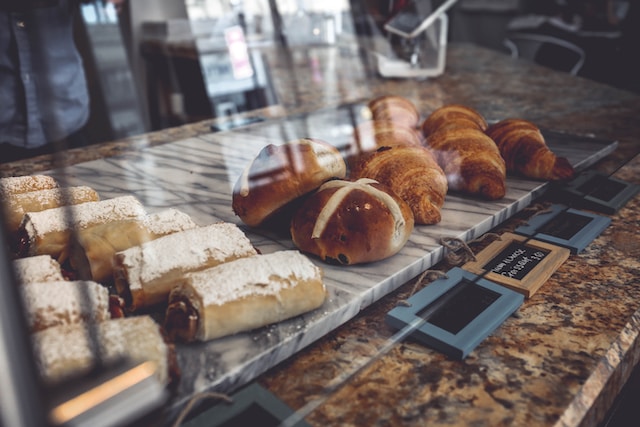
How a Bakery Case Can Improve Product Freshness and Quality
A bakery case keeps products at a safe temperature, allowing customers to confidently self-serve. These merchandisers are used in many food service operations, including diners, coffee shops and convenience stores. Bakery display cases are available in forced air or gravity coil systems and come with stylish glass fronts to reveal your product inventory.
Temperature Control
Investing in a refrigerated bakery case will keep pastries and desserts looking fresh and appealing to customers. This will also ensure your food stays at a safe temperature until it is ready to be served. Refrigerated bakery display cases are ideal for mousse cakes, fruit pies, meringues and buttercream cakes. They can help your business comply with health and safety regulations and appease customers concerned about the cleanliness of cafes and restaurants.
Bakery cases are available in a variety of sizes and styles. They can be dry or refrigerated and have front or rear access for employees to serve customers. Some models even have customizable exterior finishes to match your establishment’s décor. Look for a bakery case with precise temperature control settings to ensure your food stays at the right serving temperatures. You can also find bakery cases that offer adjustable humidity to improve product freshness and quality.
Humidity Control
Ensure your bakery products stay fresh and visually appealing by keeping them in refrigerated display cases. These special cases have specialized humidity control that regulates indoor temperatures and air moisture content parameters, making them suitable for bakery environments of all sizes. In addition, they help reduce the presence of flour dust, which is a common allergen. Bakery display cases have stylish glass fronts that reveal your inventory for customers. They can also increase staff-customer interactions, which may boost sales. These cases offer a high humidity level that helps keep pastries soft and ready to serve. They are available in refrigerated and non-refrigerated formats and use two basic cooling types: forced air and gravity coil. Refrigerated bakery cases have shelves that keep their contents at cool temperatures, while those without refrigeration have less moisture and are used for confections, cakes, pies, and other dry items. Some restaurants have refrigerated and non-refrigerated bakery display cases to cater to the different needs of their inventory.
Sneeze Guard Shields
As businesses begin to reopen and customers return, it is becoming increasingly important for them to feel safe and confident. Sneeze guard shields are a great way to do this. These clear plastic barriers help to separate people from products and each other and are designed to contain airborne germs. Freestanding sneeze guard shields are often found in restaurants, schools, hotels and medical offices. These acrylic and polycarbonate sneeze shields are easy to set up and can be quickly rearranged or removed as needed without using tools. They can also be disinfected using hot water, steam or isopropyl alcohol.
Lighting
For bakery items to look their best, they must be properly illuminated. Lighting on a refrigerated bakery case is important in merchandising products and extending their shelf life. Some patients use specialized bulbs that enhance certain colors or types of products, and some have additional interior lighting as an option. Bakery cases come in various styles, including dry and refrigerated models. While non-refrigerated bakery display cases are great for displaying and selling items that do not require refrigeration, such as cookies, pastries or bagels, some products, such as mousse cakes, cheesecakes or fruit pies, must be kept cold. Refrigerated bakery display cases hold temperatures between 33 and 41 degrees Fahrenheit to keep these perishable products fresh and attractive to customers.




